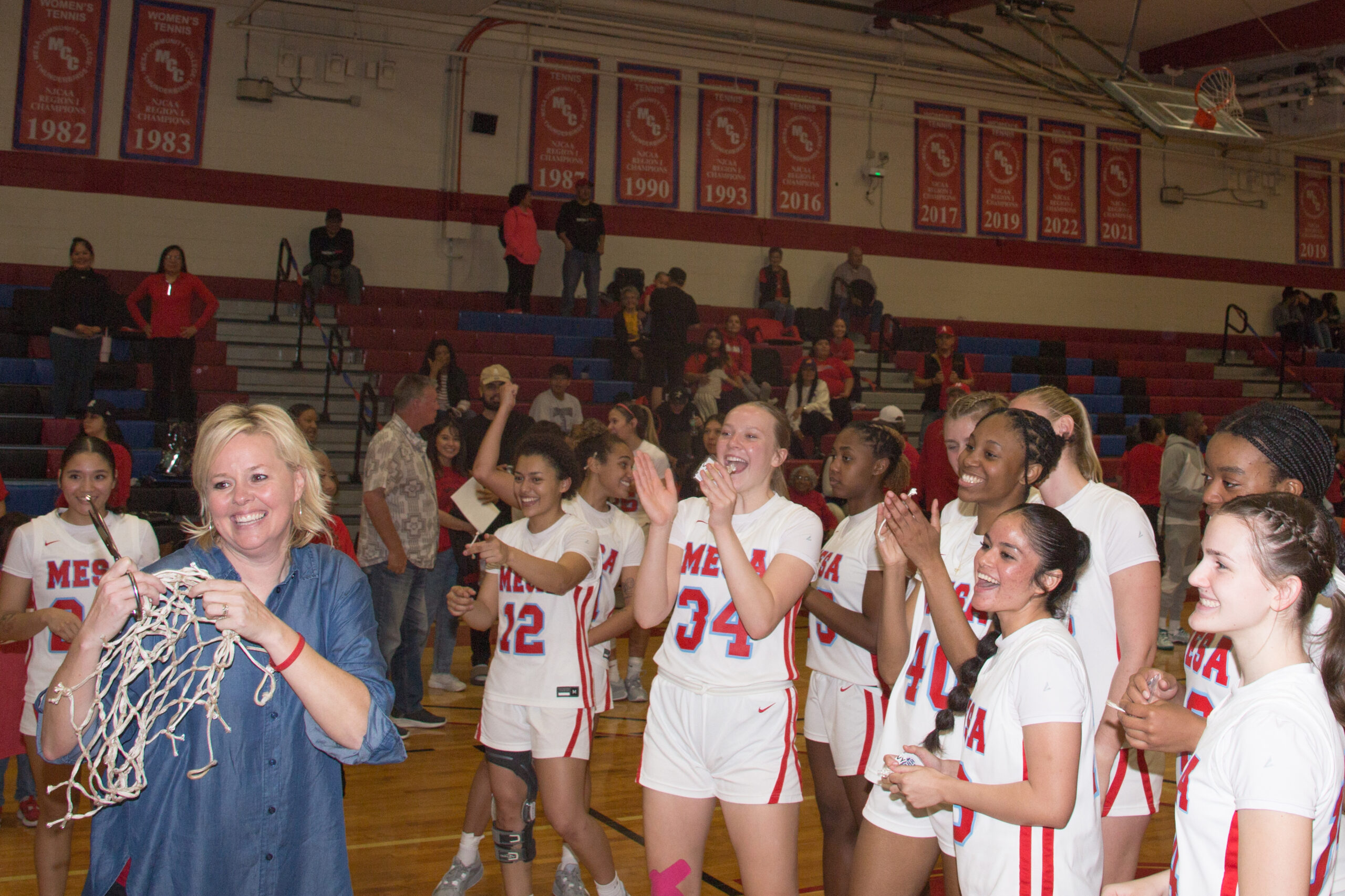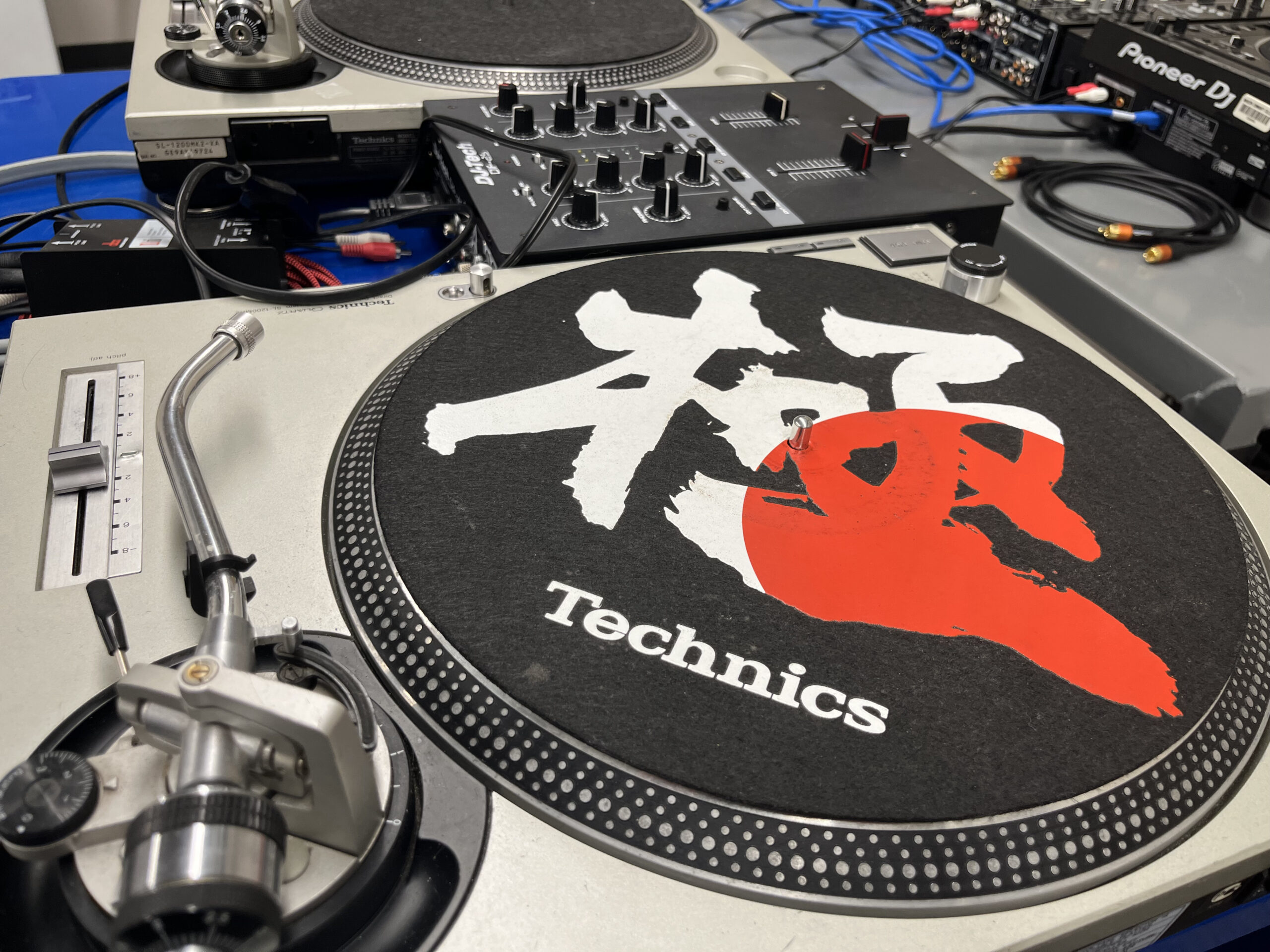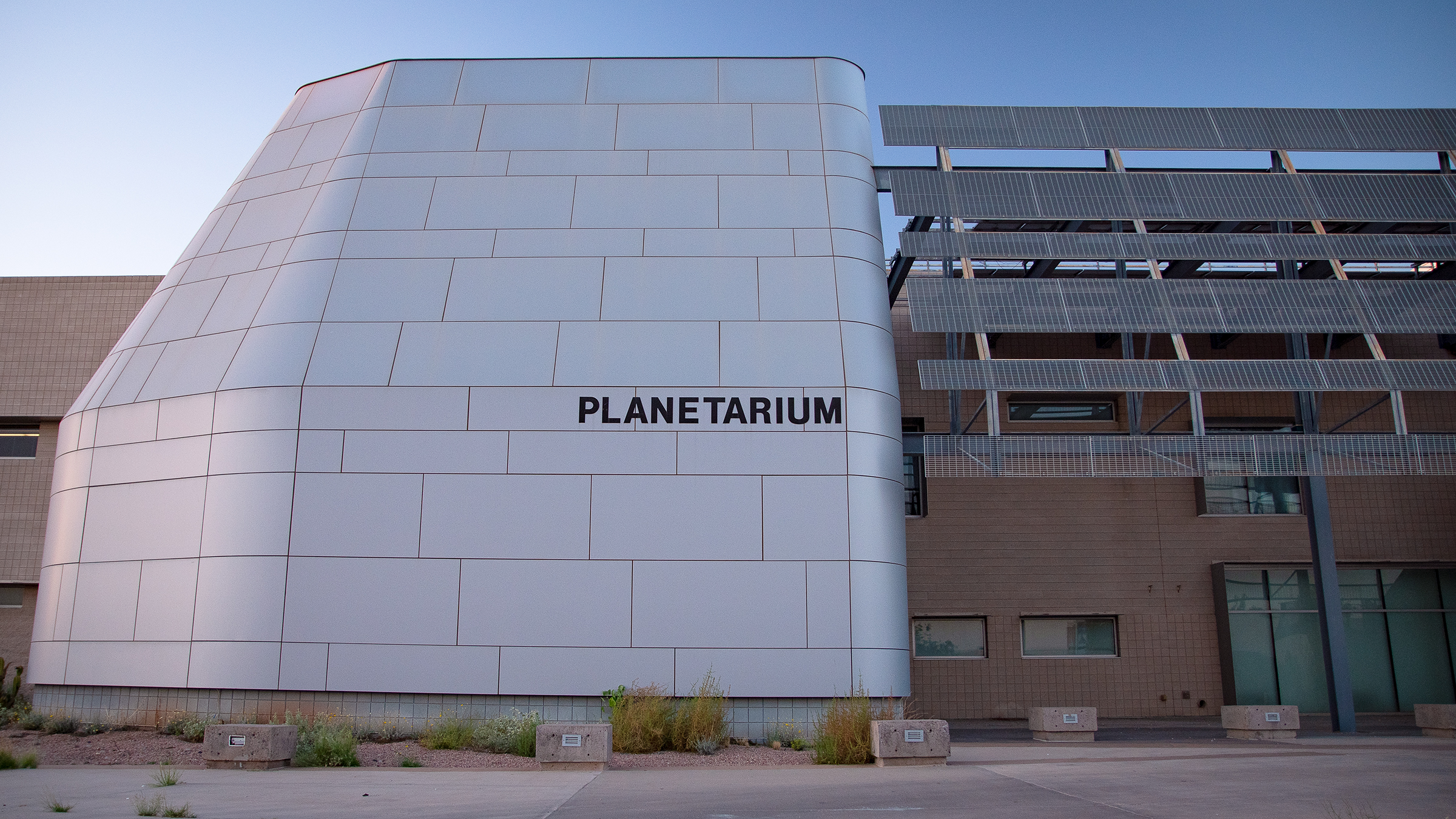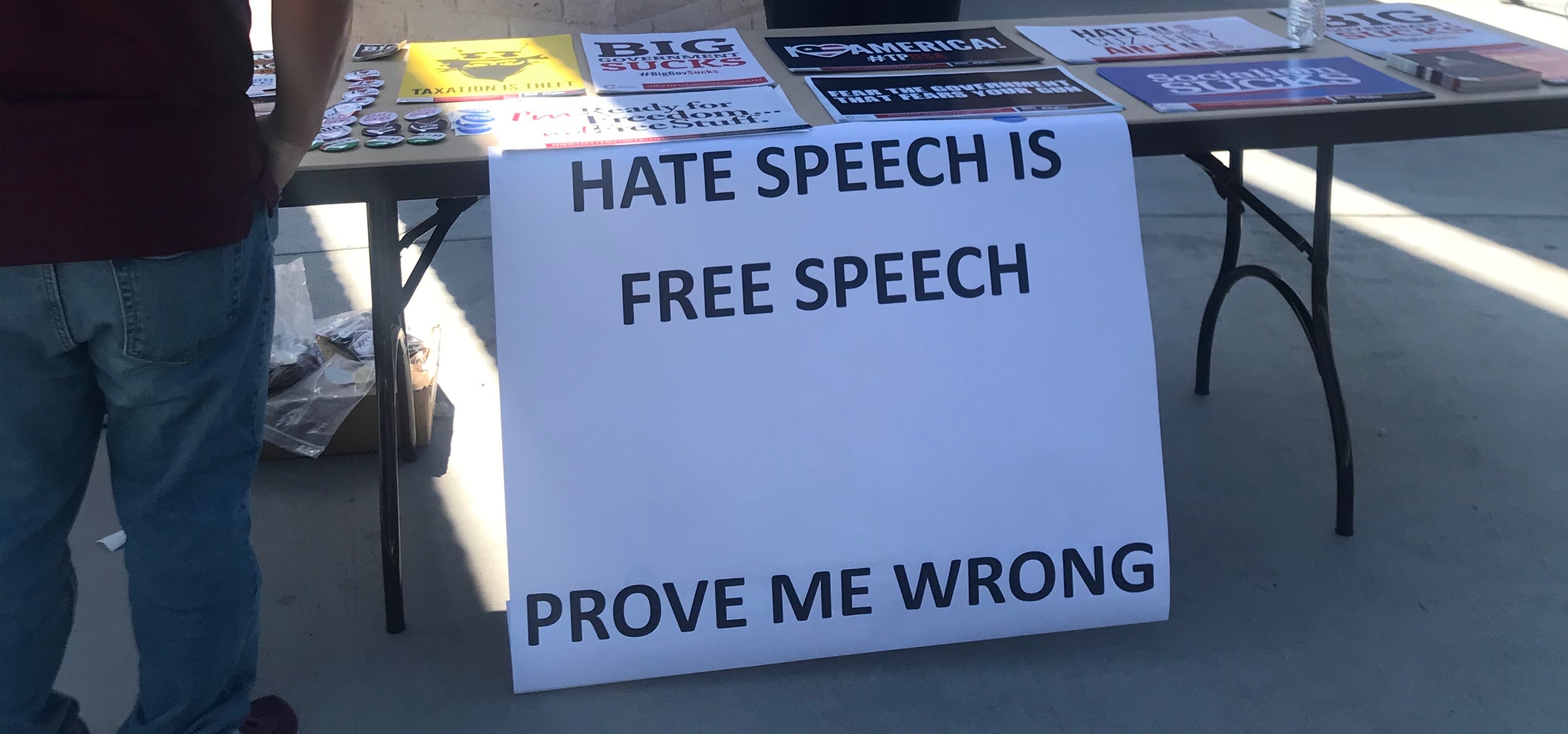Message sparks debate on campus
A table dons the words, “hate speech is free speech, prove me wrong,” under the clock tower on the morning of Thursday, March 28.
Turning Point MCC, an extension of the national organization Turning Point USA, and a recognized Mesa Community College (MCC) club, was the organizer. Their booth, also sporting flyers stating, “Socialism Sucks”, “Taxation is Theft” and “I love America” were met with mixed reactions from students walking by.
“Essentially, we are giving voice to the voiceless,” says Jacob Barney, chapter president, and MCC business student. “There is the argument what is hate speech? How do we define what hate speech is?”
While he agreed that there is a boundary where certain speech is unacceptable, Barney explained that the idea behind their message is protecting freedom of speech since what is ‘hateful’ is subjective to individuals. “What I may find offensive, Jean may not,” Barney continued.
Barney referred to his colleague Jean Ochoa who is also a member of Turning Point MCC. Similarly, Ochoa invited students for discussion. Ochoa described scenarios in which those who spoke of similar virtues as theirs were met with oppression and even physical attacks, which supports their group’s notion that speech must be protected, even if it may be opposed by someone else.
“We believe there is an attack on free speech across universities and other colleges. One of our members at a California university got punched for setting a table just like this,” Ochoa shared.
“It’s the idea that I can say whatever I want,” Barney added. “It may not be nice, it may not be useful, but the idea is that with more speech, it kind of kills off the ‘bad’ speech. We are able to learn, what the best kind of ideas, what are the best kinds of philosophies.”
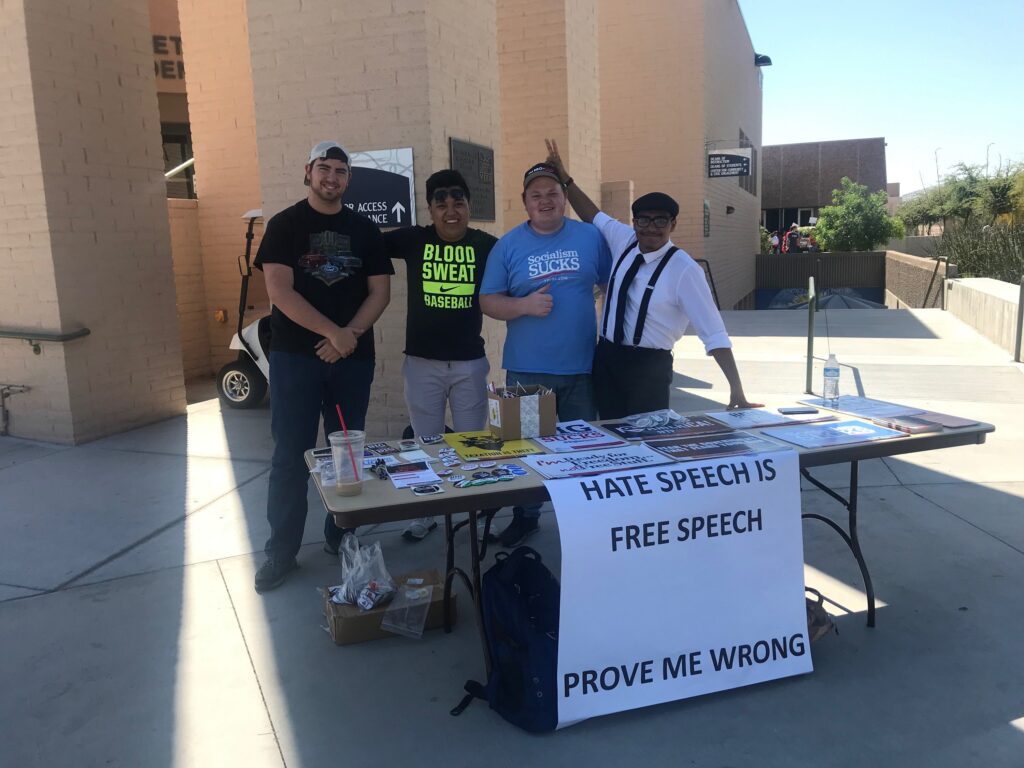
Photo: Elle Reyes / MesaCC Legend
As many students paused to peek at the table, some stopped to converse and debate. One student who opposed the club’s views is Dusty Nova, a theater major, who spent some time in a civil argument with a couple members of the group. He explained that he is unimpressed by the club’s mission as it appeared to him as a repackaging of neo-conservative views for the modern times. Nova also felt that hate speech is only the starting point of social issues.
“The problem with hate speech is almost always a gateway to violence and discrimination. What people need to understand is, violence against minorities of any kind – religious, sexual, class, race — always start with rhetoric,” explained Nova. “It’s always words that are used first and eventually those words become actions, those actions become violence, and that violence becomes state-sponsored.”
“While they might start out with words, it almost always escalates to racial animist,” Nova concluded.
On the contrary, Beatrice Van Foosen, forensic science major, stopped at the table and approved of the message. She felt that more speech opens more conversation.
“We have the freedom of speech, whether we like or not. We just have to listen or not. That’s what makes the world who we are, we are allowed to talk about different cultures, ideas, and thoughts. As Americans we need to accept that,” Van Foosen said.
Those who stopped for conversation at the clock tower were also met with discussion in economic and political systems.
Barney, who wore a t-shirt stating “socialism sucks”, referred to the U.S. being a fairly young nation which has developed economically in a fast rate compared to other nations due to the structure of capitalism and free enterprise. While the group promotes capitalism, Barney said their meetings are always open and have allowed those for socialist ideas to speak and discuss with them.
According to the American Library Association, there is no legal definition for ‘hate speech’ in the United States. The First Amendment protects speech no matter how offensive it is but does not “protect behavior that crosses the line into targeted harassment or threats, or that creates a pervasively hostile environment.” Currently, the issues of hate speech are handled legally in a case-for-case basis.
Those who stopped for conversation at the clock tower were also met with discussion in economic and political systems.
As the booth came to end at noon that day, many students carried on with heightened emotions on what hate, speech, capitalism, and socialism means to them.







